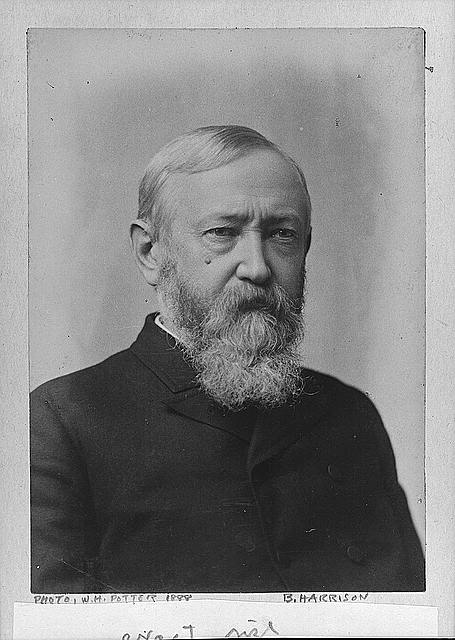President Benjamin Harrison’s tenure as the 23rd President of the United States from 1889 to 1893 was deeply intertwined with his affiliation with the Republican Party. Throughout his political career, Harrison’s policies were shaped by the core values and priorities of the Republican Party, leaving a lasting impact on American politics.
Harrison’s association with the Republican Party began in the 1850s, a time when the party was founded in opposition to the spread of slavery and a commitment to economic development and civil rights. As he rose through the ranks of the party, Harrison’s beliefs aligned closely with these foundational principles, informing his policy decisions as both a senator and later as president.
One of the key ways in which President Harrison’s political party influenced his policies was in the realm of economic development. The Republican Party, known for its support of protective tariffs and pro-business policies, played a significant role in shaping Harrison’s approach to economic issues during his presidency. His advocacy for protective tariffs aimed to protect American industries from foreign competition and stimulate domestic economic growth.
Additionally, Harrison’s dedication to veteran pensions reflected the Republican Party’s historical support for military veterans and their families. As president, Harrison worked to expand and improve pension benefits for Civil War veterans, demonstrating his commitment to honoring those who had served the nation.
On the international front, Harrison’s foreign policies were also influenced by the Republican Party’s vision for American expansion and global influence. His administration’s efforts to strengthen ties with Latin American countries through initiatives like the Pan-American Conference underscored the party’s belief in promoting American interests abroad.
Furthermore, President Harrison’s commitment to antitrust legislation aligned with the Republican Party’s stance on promoting competition and curbing monopolistic practices in the marketplace. The passage of the Sherman Antitrust Act in 1890 was a landmark achievement that laid the groundwork for future antitrust laws and demonstrated Harrison’s dedication to fair business practices.
Despite the challenges he faced, including economic downturns and internal party disputes, President Harrison remained steadfast in his pursuit of Republican ideals and policies. His leadership during a time of significant change and growth in the United States left a lasting impact on the Republican Party and helped shape its trajectory for years to come.
President Benjamin Harrison’s close alignment with the Republican Party played a pivotal role in shaping his policies and governing style during his presidency. His commitment to economic development, civil rights, and international diplomacy mirrored the core values of the party, leaving a legacy of leadership that continues to resonate within the GOP and American politics as a whole.
